#Natural Information Society
Explore tagged Tumblr posts
Text
Music is an Essential Verb: Derek Taylor 2023

Music remains, along with family, friends, and a select few venial vices, my primary daily defense against the mental erosions of spiritual malaise and existential dread. Being a humanist also means being a realist, and little looks to be different on that score in the year ahead as we continue to careen toward a bleak and self-defeating dénouement. The veil of uncertainty around what ultimately feels like inevitability redoubles the need to remain thankful for and supportive of those who devote themselves to art. Summary capsules below describe some of the sounds that kept me going in 2023.
Peter Brötzmann, Wayne Shorter, Kidd Jordan, & Charles Gayle

“The trauma of my generation was what our fathers had done to the rest of the world, and so we said, ‘never again,’ and that was the whole impetus through all my life, and it still is.” ~ Brötzmann (2018)
Musician attrition and demise are dispiriting aspects of every annum, but the departure of four disparate octogenarian reedists exacted an especially steep emotional and cultural toll this year. Shorter and Jordan passed away in March, each of them leaving a rich legacy as indefatigable improviser and altruistic educator that continue influence and inspire. Brötzmann exited in June after the return of a protracted respiratory illness. Few if any can match the magnitude of his mileage and six-decade itinerary as an irrepressible, obstinately adventurous world traveler. Gayle ascended in September, an ardent, uncompromising eremite to the end. All four men left behind discographies and concert/interview footage that will leave the faithful and curious listening and marveling in perpetuity, but their collective absence still aches.
Kirk Knuffke & Joe McPhee Quartet + 1 – Keep the Dream Up (Fundacja Sluchaj)
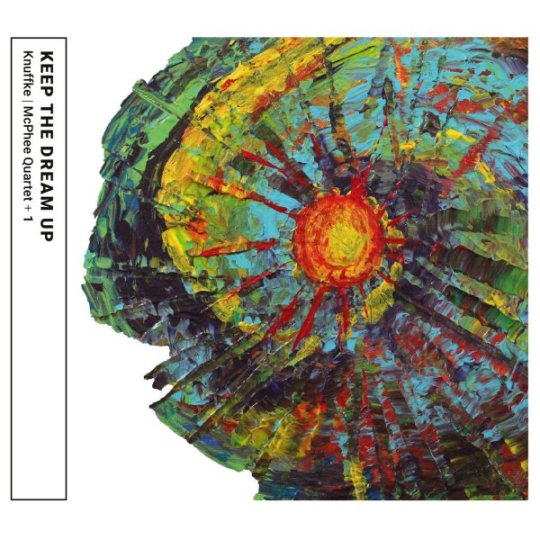
One of the manifold joys of following the output of Kirk Knuffke is anticipating who he’ll collaborate with next. The cornetist’s ears and imagination are as huge as his heart, a trait he has in common with the equally equanimous Joe McPhee. They’ve known each other for years but Keep the Dream Up is their first released collaboration and it’s an affirming alloy of their complementary creative temperaments. Longtime McPhee comrades Michael Bisio and Jay Rosen complete the quartet with bass clarinetist Christof Knoche comprising the additive on a Brooklyn studio session that captures collective creative lightning in a digital bottle. My album of the year for these reasons and more, although hopefully Joe will bring his brass to a follow-up conclave soon.
Don Byas – Classic Sessions 1944-1946 (Mosaic)

Saxophonist Don Byas recorded prolifically during the 1940s. His porous sound and popular style bridged the schools of swing and bop through prowess and panache aligned with the most esteemed of post-WII tone scientists. That sustained industriousness hasn’t reflected in reliable access to his works, primarily because they’re spread across a plethora of independent labels and competing copyrights. Leave it to Mosaic Records to rectify the longstanding reissue lacuna. This long gestating collection corrals and sequences the bulk of them across ten discs, scrubbing their sound, and adding an expansive cache of rarified verité concert recordings made in a Swedish jazz fan’s residence. Indulging in one’s Byas bias has never been easier or as edifying.
Fred Anderson – The Milwaukee Tapes Vol. 2 (Corbett vs Dempsey)
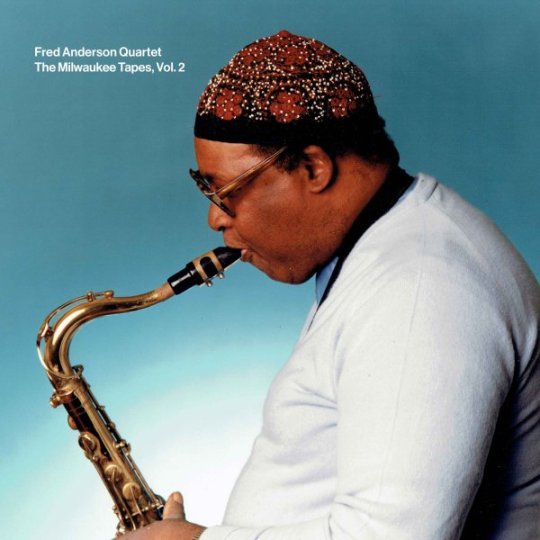
Patience and long-game aptitude are among music producer/archivist/advocate John Corbett’s virtues. This unexpected, but abundantly welcome sequel to an archival Anderson collection on Corbett’s long defunct Unheard Music Series took 23 years to secure commercial circulation and offers an additional hour-plus from the same gig in improved sound. Fellow AACMers Billy Brimfield and Hamid (nee Hank) Drake join bassist Larry Hayrod in bringing vibrant, detailed life to the Lone Prophet of the Prairie’s (as Anderson was affectionately known) serpentine, cerulean melodies. Corbett’s current label released a plenitude of music in 2023 (see also below) but the uncommon opportunity to hear more Anderson of any vintage makes this release worthy of independent mention.
Jason Adasiewicz
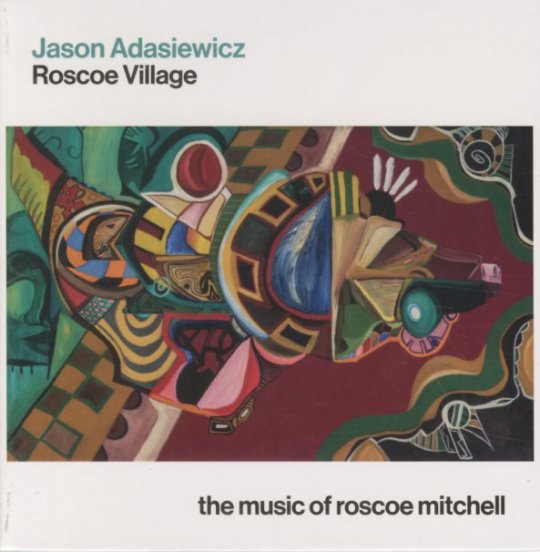
Corbett vs. Dempsey also had a welcome role in Jason Adasiewicz’s return to record with two different projects. On vinyl, Roy’s World documents a 2017 Chicago studio session by the vibraphonist’s quintet originally intended as the soundtrack to a film based on neo-noir novelist Barry Gifford’s short stories. Chicago stalwarts Josh Berman, Joshua Abrams, Hamid Drake, join saxophonist Jonathan Doyle in the ensemble for a program that sounds at once fresh and nostalgic while always vital. On CD, Roscoe’s Village dispenses with band for a solo selective foray through the songbook of Roscoe Mitchell including evocative renderings of “Congliptious” and “A Jackson in Your House” that retain the composer’s essence while striking out in bold new directions.
Natural Information Society

Grounded as it is in core voices of guembri, frame drum and harmonium, codification of Josh Abrams’ NIS as a jazz ensemble immediately feels reductively incomplete. All participating instruments can be active architects in the undulating, melody-laced drones that frequently form the basis of the band’s gradual, granulated improvisations. Performances are more akin to collective expeditions where a galvanizing gestalt effect is afoot; one where earned communal peaks preserve the individual power and agency of the interlocking parts. Since Time is Gravity augments this already catalytic template by incorporating a larger contingent of Chicago colleagues including tenorist Ari Brown to the equation.
Abdul Wadud
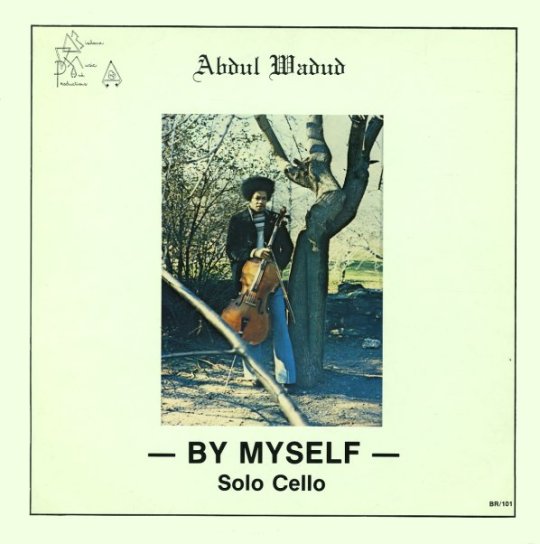
A jazz-based improviser on the cello who didn’t double on other stringed instruments, Wadud was also a consummate collaborator and sideman. Magnanimity in lending his substantial talents to the projects of others resulted in a paucity of albums under his own name. By Myself from 1977 on the Bisharra label is a revelatory anomaly on that self-effacing resume. Wadud approaches the instrument as a multifaceted sound factory, plucking, strumming, and bowing, often simultaneously, to create solo tone poems steeped in personal poignancy. Gotta Groove’s vinyl reissue is a beautiful facsimile of the original album object in faithfully reconstructed fidelity.
Marion Brown

Georgia-born altoist Marion Brown had a lengthy, storied career but the body of recorded work that he left behind can present difficulties in terms of ingress to its totality. Scattered across labels, years, and circumstances, much of it is either out of print or commercially unreleased. That collective relative obscurity makes a trio of releases, two on the German Moosicus label, and a third Record Store Day viny reissue of Brown’s 1970 studio duets with Wadada Leo Smith under the shared sobriquet Creative Improvisation Ensemble even more valuable. Of the former two, Mary Ann presents concert material by Brown’s quartet from a 1969 Bremen club gig in soundboard fidelity. Gesprächsfetzen & In Sommerhausen combines two more German concert snapshots, quintet, and sextet, from 1968 & 1969 with Gunter Hampel originally released on the Calig imprint. Steve McCall is a boon on drums in all three contexts.
Art Pepper – Complete Maiden Voyage Recordings (Omnivore)

Art Pepper was an inveterate rake for most of his life, magnifying destructive interpersonal tendencies with drugs and frustratingly frequent acts of self-sabotage. That star-crossed propensity makes the fact that he left so much magnificent music even more miraculous. This lavish box is a fascinating compendium of the constantly competing artistic contradictions at his center, collecting a quartet gig across three nights and seven club sets in Pepper’s native Los Angeles, ten months prior to his premature passing at 56. Over half of the music is previously unreleased and the rhythm section, led by the impeccable and implacable pianistics of George Cables, gives Pepper a cumulative confidence boost that keeps him on the rails. None of it has ever sounded better.
Pan Afrikan People’s Arkestra

Los Angeles of the late-1970s was an unforgiving environment for the economic necessities of orchestral jazz. The Pan Afrikan People’s Arkestra, under the nominal leadership of pianist/composer/community organizer Horace Tapscott, was a tenaciously subversive force in the face of that ruinous rule. Adopting the Immanuel United Church of Christ as an informal base of operations, the large ensemble resourcefully engaged in an ambitious series of concerts in 1979. The Nimbus label, long a Tapscott exponent and repository, released the first three entries this year in an archival subscription series collecting the voluminous results. Titles are also available individually and present the pivotal band at a performative peak with star soloists Sabir Mateen, Billy Harris, Jesse Sharps, and Robert Miranda shining just as bright as their fearless foreman.
Alan Skidmore – A Supreme Love
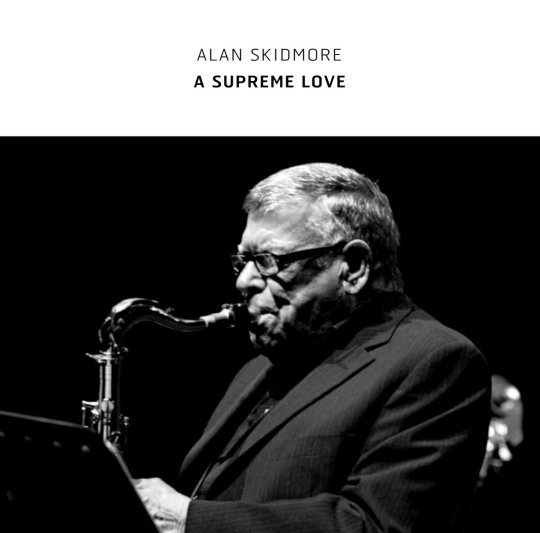
Unexpectedly issued on Mark Wastell’s Confront label, an imprint better known for its fealty to free improvisation, this six-disc archival tribute to Alan Skidmore’s 70+ year career in music launches with the saxophonist’s 1961 radio debut and lands some seven-hours later with his intimate 2019 rendering of John Coltrane’s “Psalm.” The aural expanse between is brimming with bright moments and luminary collaborators the likes of which include Tony Oxley, Kenny Wheeler, Wayne Shorter, Dave Holland, Mike Osborne, Elvin Jones, and another dozen name drops from the top tier of improvised music. It’s a wild, illuminating ride and a sterling example of a musical memorial done right.
The Jazz Doctors – Intensive Care/Prescriptions Filled: The Billy Bang Quartet Sessions 1983/1984 (Cadillac)
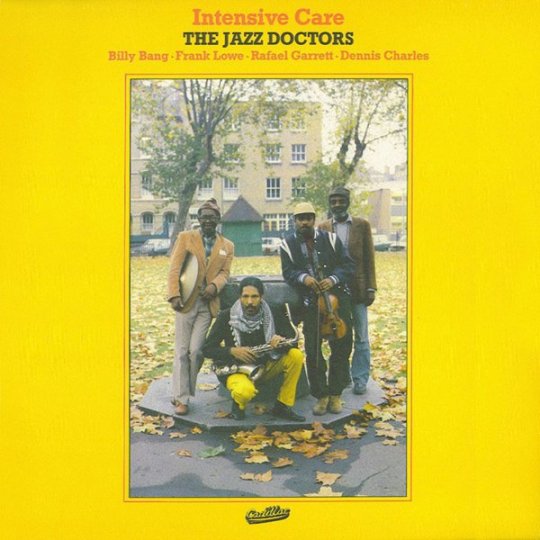
Billy Bang and Frank Lowe shared a bottomless fraternal bond forged through parallel traumas internalized in Vietnam and expressed by the subsequent embrace of the restorative power of improvised music. The pair of sessions (one reissued, one archival) collected on this disc epitomize their deep attachment arguably as well as any of their other numerous collaborations. Outside the cardinal duo, the Jazz Doctors never really had a stable lineup, but the quartets here embody two of their best. Both programs are loosely adherent to freebop conventions with violin and tenor saxophone combining over contrabass and drums for a potent front line. Bang and Lowe are long gone now, their shared absence making the availability of this music even more precious.
Attila Zoller & Jimmy Raney
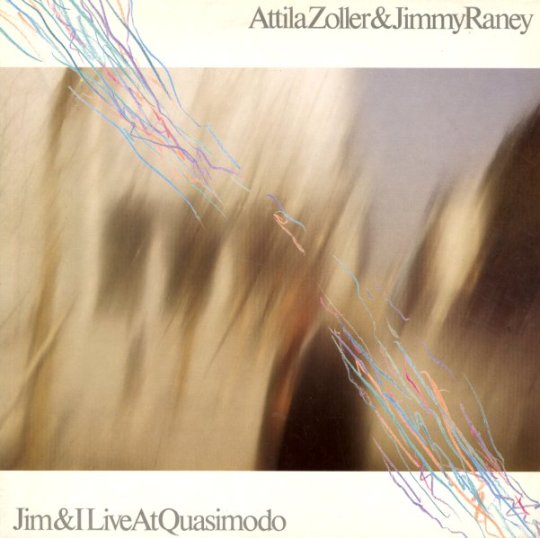
Hungarian guitarist Attila Zoller had selective affinity for other artists on the instrument, so much so that his mid-career period is seeded by fateful encounters with plectrist peers. Most prolific among these partnerships was his prudent pairing with Jimmy Raney. A popular proponent of bop-based jazz, Raney was in a similar exploratory headspace when the two joined forces on a trio of recordings for the German L + R label over a seven-year span. Concert dates from Frankfurt (’80) and Berlin (’86) find the duo spooling out lengthy dialogues that dabble in free improvisation while keeping codified melodies within reach. An earlier New York encounter (’79) explores their rapport in a studio. All three reissues on the Japanese Ultra-Vybe imprint are aces.
Steve Swell’s Fire Into Music
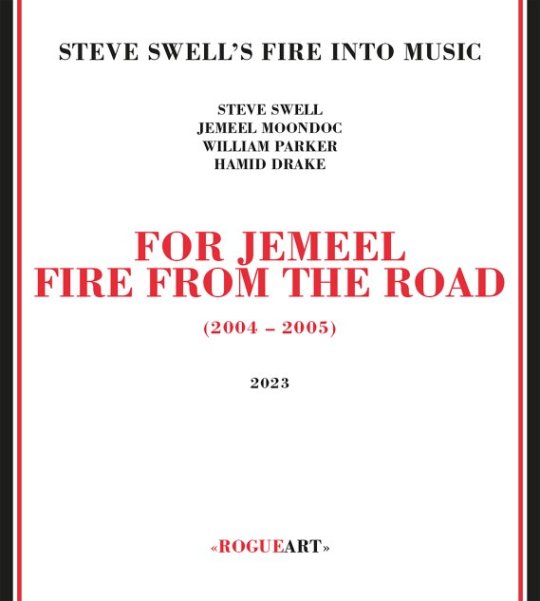
Simultaneously emblematic of NYC free jazz in the early aughts and fiercely dedicated to resisting pitfalls of provincialism by touring generously and rigorously, trombonist Steve Swell’s Fire into Music was one of the finest quartets of its kind. Posthumously dedicated to the late altoist Moondoc, this three CD set collects a trio of small venue concerts by the band from gigs in Texas and Ontario. As with the horns, William Parker and Hamid Drake are ideally suited to the extended, expository freebop safaris that formed the ensemble’s flexible repertoire. Swell’s the leader on paper but sagely embraces musical communalism without fail.
Intakt
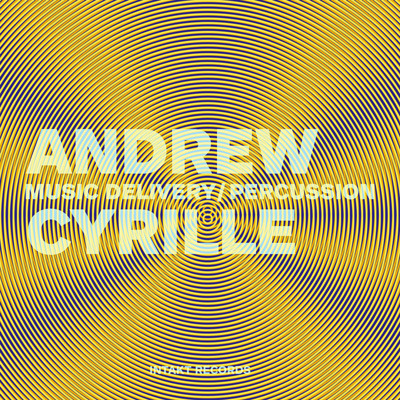
Running a physical media imprint in the 21st century is an inherently parlous enterprise, but this steadfast Swiss label continues to evidence how it’s done. This year’s standout catalog entries include Andrew Cyrille’s Music Delivery/Percussion, the octogenarian drummer’s third solo album and first in 45-years; bassist Jöelle Leandré’s solo Zurich Concert; pianist Aruán Ortiz’s Serranías Sketchbook for Piano Trio; Beyond Dragons by the trio of saxophonist Angelika Niescier, cellist Tomeka Reid, and drummer Savannah Harris, and Ohad Talmor’s Back to the Land, a quartet-plus-guests survey that takes its compositional focus an archival workshop date by Ornette Coleman and Lee Konitz.
Ezz-thetics

The appearance of the Swiss Ezz-thetics imprint four years ago raised both eyebrows and ire. Lacking access to master tapes, veteran free jazz and new music producer Werner Uehlinger sourced commercially released editions instead, employing ace audio engineer Peter Pfister succeeded by Michael Brandli to rejuvenate and refurbish the recordings, stateside copyright considerations be damned. Reaction was expeditious and polemical, but proof is in the hearing as most of the label’s dozens of releases sound better than their original incarnations. Catalog highlights this year include another round of Albert Ayler airshots including his pivotal meeting with the Cecil Tayor Trio in 1962 on More Lost Performances, Charles Mingus’ At Antibes 1960, and Ornette Coleman’s At the Golden Circle.
Fresh Sound

Jordi Pujol is akin to Uehlinger in that he refuses to let his vision and ambitions as a producer be abbreviated by external opinion. In Pujol’s case it’s yielded a bountiful inventory of antiquarian titles that rights holders have shown little to zero interest in restoring to begin with. Cases in point for this year include a definitive collection of obscurando saxophonist Boots Mussulli’s works; concert and studio collections by the Count Basie alumni tandem of Al Grey and Billy Mitchell; hens’ teeth rare leader sessions by Arthur Lyman vibraphonist Julius Wechter; and a two-fer of Julliard-trained Ellingtonian Cass Harrison piano trio albums. Exciting guilty pleasures all around.
Playing for the Man at the Door
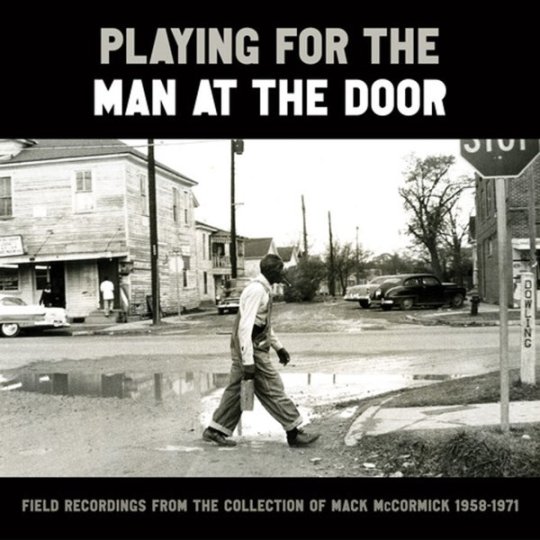
As complex as he was controversial, Robert “Mack” McCormick deserves consideration in the esteemed company of other maverick cultural archivists like Alan Lomax, George Mitchell, and Harry Smith. With a preservationist purview mostly comprising Texas and bordering states, McCormick spent much of his adult life obsessively documenting and disentangling the cultural capital of the region through recordings, photography, interviews, essays, and research. Smithsonian Folkways became repository for the massive reservoir after his passing and this box is the first in what will hopefully be multiple dispatches from the same. Unreleased field recordings of Mance Lipscomb and Lightnin’ Hopkins represent the big names, but works by the likes of Hop Wilson, Cedell Davis, Robert Shaw, and a handful of others are just as persuasive. Bongo Joe Coleman’s impassioned presidential pitch closing the set will have listeners pining for a time when third party Executive Branch candidacy didn’t seem so fraught.
Joni Mitchell Archives - Vol. 3, The Asylum Years 1972 to 1975

Mitchell’s continuing project corollary to her old friend Neil Young’s analogously exhaustive retrospective enterprise, this third entry in the series finds her 30-something-self further broadening the lens of her art beyond the solo concert music that dominated the first two boxes. There are stirring solitary shows here, too, but it’s the band offerings that prove most revealing, particularly in the company of reedist Tom Scott’s fusion group L.A. Express. James Taylor, Graham Nash, and David Crosby lend contributory hands, and there’s a brief but intriguing collaboration with Young alongside a trove of demos and workshop versions of songs from her first three albums for Asylum.
Martin Davidson

In closing, another memorial. Martin Davidson wasn’t a musician, but European free improvisation as an art and archive would be a fraction of what it is without his copious and enduring work. As steadfast proprietor of the Emanem label he put his resources into musicians whose efforts frequently fell outside the probability of consistent commercial remuneration. Under his aegis, influential improvisers like Steve Lacy, Derek Bailey, Evan Parker, and Paul Rutherford gained robust catalogs alongside other aspiring artists who never garnered even niche cachet. Davidson was a curmudgeon and an anachronism, trusting his ears implicitly, suffering the indignities of inquiries from strangers seeking audience with the hip hop icon who shared the phonetics of his imprint’s name, and advancing the pleasures of physical media well past their purported expiration date. He was also a talented writer, adding invaluable context to his releases through first-person testimony and critique. Martin will be missed.
And as is tradition in this 20th iteration of this year-end exercise, 25 more titles in stochastic order. Thanks to all for reading, and gratitude to Jennifer Kelly for providing the forum and formatting.
Rodrigo Amado’s The Bridge – Beyond the Margins (Trost)
James Brandon Lewis – For Mahalia with Love (Tao Forms)
Henry Threadgill – The Other One (Pi)
Guillermo Gregorio – Two Trios (ESP)
Rob Brown – Oceanic (RogueArt)
Rich Halley Quintet – Fire Within (Pine Eagle)
Milford Graves w/ Arthur Doyle & Hugh Glover – Children of the Forest (Black Editions)
Mike Osborne – Starting Fires: Live at the 100 Club 1970 (British Progressive Jazz)
Jim Hall – Uniquities Vol 1 + 2 (ArtistShare)
Madhuvanti Pal – The Holy Mother (Sublime Frequencies)
V/A – On the Honky Tonk Highway with Augie Meyers & the Texas Re-Cord Company (Bear Family)
Mal Waldron & Terumasa Hino – Reminiscent Suite (Victor/BBE)
Oum Kalsoum – L’Astre D’Orient 1926-1937 (Fremeaux & Associates)
Sonny Rollins w/ the Heikki Sarmanto Trio – Live at Finlandia Hall Helsinki 1972 (Svart)
V/A – Equatoriana: El Universo Paralelo de Polibio Mayorga (Analog Africa)
Evan Parker – NYC 1978 (Relative Pitch)
V/A – If There’s a Hell Below (Numero Group)
John Coltrane – Evenings at the Village Gate (Impulse)
Derek Bailey & Paul Motian – Duo in Concert (Frozen Reeds)
Peter Brötzmann/Fred Van Hove/Han Bennink/Albert Mangelsdorff – Outspan 1 & 2 (FMP/Cien Fuegos)
Hasaan Ibn Ali – Reaching for the Stars: Trios/Duos/Solos (Omnivore)
Mark Dresser – Tines of Change (Pyroclastic)
Steve Millhouse – The Unwinding (Steeplechase)
Myra Melford’s Fire and Water Quintet – Hear the Light Singing (RogueArt)
V/A – Destination Desert: 33 Oriental Rock & Roll Treasures (Bear Family)
#dusted magazine#derek taylor#yearend 2023#Peter Brötzmann#Wayne Shorter#jazz#kidd jordan#charles gayle#kirk knuffle#joe mcphee#don byas#fred anderson#Jason Adasiewicz#natural information society#Abdul Wadud#marion brown#art pepper#Pan Afrikan People’s Arkestra#Alan Skidmore#The jazz doctors#Attila Zoller & Jimmy Raney
16 notes
·
View notes
Text
Natural Information Society
2 notes
·
View notes
Photo

Joshua Abrams :: The Aquarium Drunkard Interview
On April 19 of this year Abrams sat for a Zoom call in the Chicago home he shares with his partner Alvarado, backed by one of her signature glowing artworks. Abrams expressed his life’s work with the same reflective purpose and dedication he brings to his art. He discussed his Jewish upbringing, working with The Roots, jamming with Chicago’s finest improvisers and his unparalleled Eremite albums.
8 notes
·
View notes
Text
Paint Groove playlist #120 “Imaginary Islands”
1. Le jardin (Remix) - Roedelius
2. Hew - Flaer
3. Fratello Mare - Mike Cooper
4. ひかりの地図 Deep Sea Bell - GOMA
5. Interior Districts of the Sprit World - Josiah Steinbrick
6. Space 6 - Nala Sinephoro
7. The Big Ship - Brian Eno
8. Emmène Ma Respiration - Roger 3000
9. Anemometer - Natural Information Society & Bitchin Bajas
#paintgroove#spotify#applemusic#bitchin bajas#Natural Information Society#Roedelius#Flaer#Mike Cooper#GOMA#Josiah Steinbrick#Nala Sinephoro#Brian Eno#Roger 3000
0 notes
Text

Natural Information Society — Since Time Is Gravity. 2023 : Eremite.
! listen @ Bandcamp ★ buy me a coffee !
#jazz#folk music#big band#Natural Information Society#2023#eremite records#joshua abrams#hamid drake#free jazz#2020s#2020s jazz
1 note
·
View note
Audio
Listen to: Stigmergy by Natural Information Society
1 note
·
View note
Text
Starts and Moves, 2023/05/20-2023/05/26
clone the living!
There was a tweet or something that I saw a while back— no, I don’t remember when, my sense of time is destroyed, and no it wasn’t a meme, it had not reached that density of repetition— shouting out various flavors and genres of queer people, ending with “trans masc skaters, how’s it feel to be god’s favorite?”. Right now, I can say with confidence that it feels pretty fucking good. The genocidal…
View On WordPress
#Heavy Rotation#James Ellis Ford#music discovery#Natural Information Society#new music#now listening#Sleepwalk#Starts and Moves#streaming#Washer
0 notes
Photo

Lisa Alvarado - Vibratory Cartography: Nepantla (used as cover art for Natural Information Society‘s Since Time Is Gravity)
1 note
·
View note
Photo

Natural Information Society: Stigmergy Natural Information Society—an ensemble led by avant-garde composer and musician Joshua Abrams—is poised to release Since Time Is Gravity next month, and from it shares the 13-minute “Stigmergy.” The mesmerizing, sprawling piece of music blends jazz with psychedelic elements and an otherworldly feeling. Meditative and hypnotic, the track is “an ensemble ostinato orbiting an Ace Tone Rhythm Ace refracted through Echoplex, dedicated to Arkestra pioneers … https://coolhunting.com/culture/natural-information-society-stigmergy/
#Culture#Experimental#Jazz#Joshua Abrams#ListenUp#Music#Natural Information Society#Katie Olsen#COOL HUNTING®
0 notes
Text
Dusted Mid-Year 2023, Part Two

Yo La Tengo
And we’re back with the second half of the alphabet—from Kookei to Yves Tumor. If you missed it, check out part one here. We’ll have the writers’ lists tomorrow.
Kookei — The Incredible Hulk (H$G Studios)
youtube
Who picked it? Ray Garraty
Did we review it? No
Tim Clarke’s take:
Detroit rapper Kookei has a truly bizarre rapping style. He delivers almost everything in a hushed whisper, as if he’s right there inside your earbuds, sibilance sizzling, braggadocio booming. Though Kookei rarely wavers from this vocal approach, the production across The Incredible Hulk varies wildly in consistency and quality. Trap beats, synth stabs and rudimentary piano loops dominate the backing tracks, with cuts such as “Jackie Chan” sounding much more rich and polished, while others such as “Cousin Skeeter” and “Headshot Gang 2” bleed into the red, making for some wince-worthy distortion. Admittedly this stuff is no doubt supposed to be heard loud while high as a kite, so I can’t say I’ve been able to fully appreciate its intended effect.
Kali Malone — Does Spring Hide its Joy (Ideologic Organ)
Does Spring Hide Its Joy by Kali Malone (featuring Stephen O’Malley & Lucy Railton)
Who nominated it? Jason Bivins
Did we review it? No
Andrew Forell’s take:
At three hours in duration, Swedish composer Kali Malone’s latest long form composition seems a daunting proposition. Based on Malone’s tuned sine wave generators, Stephen O’Malley’s guitar and Lucy Railton’s cello, Does Spring Hide Its Joy is an extraordinarily rewarding experience. Within the elemental drones, Malone conjures tectonic movement both sweeping and incremental. Microtonal changes feel enormous, the glacial pace focuses the ear on every imperceptible progression, every movement of bow across string and the shimmering harmonic interaction between the instruments. Recorded in early 2020, Does Spring Hide Its Joy reflects those early days of the pandemic when time seemed at a standstill and lethargy, dread and inertia slithered their way in. Three years on, this music resonates with the ongoing effects of those upheavals. All the terrible beauty is here and if you have the time to concentrate, Kali Malone and her collaborators provide a cavernous space in which to process. Very highly recommended and thank you to Jason for the impetus to listen.
Natural Information Society — Since Time is Gravity (Eremite)
youtube
Who Picked it? Bill Meyer
Did we review it? Yes, Christian Carey said, “Whether the new collaborators will remain, or other players will join Abrams, Since Time is Gravity demonstrates that Natural Information Society is a durable creative enterprise.”
Bryon Hayes’ take:
Most of us at Dusted love Natural Information Society, and with good reason: Joshua Abrams and his ever-evolving ensemble know how to concoct a hypnotic brew. As such, it’s no surprise that this record made it to the top of someone’s list this year. If you were lucky enough to catch the latest incarnation of the group – swollen in ranks and named Natural Information Society Community Ensemble with Ari Brown – play live in 2022, you’d have an idea of what’s in store for you on Since Time is Gravity. Even though they might not have been playing this particular material, the large ensemble interplay featured here was definitely on display in the live setting, as was Ari Brown’s crafty soloing. It’s prudent to note that the songs are shorter in comparison to the marathon that was Descension (Out of Our Constrictions), but this is great because as a listener you get to follow the group along a variety of pathways. It will be interesting to see where Abrams takes Natural Information Society next, but you can be sure of one thing: we at Dusted will love it.
Pile — All Fiction (Exploding in Sound)
All Fiction by Pile
Who picked it? Patrick Masterson
Did we review it? Yes, Patrick said, “All Fiction furthers that thinking, another reason this feels less like a leap and more like a carefully considered step toward further Piledom — the band’s flowing, peripatetic nature makes writing about individual songs less important than considering the whole.”
Ray Garraty’s take:
All Fiction is anemic enough to ask yourself: do they eat enough? Rick Maguire’s voice here sounds like he could use more nutrients and proteins in his diet. He kind of wakes up on some tracks, like “Poisons,” yet core of the album is that sad, melancholic material disillusioned middle-aged men write. It’s Radiohead-ish, it’s rock-ish and it’s… just flat? If it’s really what fiction is these days, I better stick with nonfiction.
The Reds, Pinks and Purples — The Town That Cursed Your Name (Slumberland Records)
The Town That Cursed Your Name by The Reds, Pinks & Purples
Who recommended it? Christian Carey
Did we review it? Yes; Jennifer Kelly wrote, “Glenn Donaldson puts a louder, fuzzier attack behind his gossamer-wistful songs this time, amping up the volume for a set of darker, more desolate tunes.”
Jonathan Shaw’s take:
It seems to me that Pitchfork gets something right about the Reds, Pinks and Purples: Jude Noel’s review of The Town That Cursed Your Name notes, amid a breathlessly positive assessment, that the band’s records “simply pick up where the last left off, like a series of Moleskines filled end to end.” That may be so, and the consistency of Glenn Donaldson’s songcraft likely provides a good deal of the band’s appeal—but do you really want to spend time reading a batch of someone else’s Moleskines? The Whole Foods grocery lists and the snatches of wood-shopped poetry and the paragraphs of winsome repining? If so, check out “Almost Changed,” the ninth track on The Town That Cursed Your Name, which doesn’t quite brood and doesn’t quite whine and doesn’t really seem interested in making anything change in the first place. To be fair, it’s very, very hard to find fault with this record’s compositions, the rhymes and the musicianship, which are like a May breeze, a Monet pastel or a warm cup of ginger tea—or all three at once, in someone’s comfy suburban sunroom. If that’s your situation, maybe you don’t want (or need) much of anything to change. Must be nice. Here and there, The Town That Cursed Your Name stirs from its state of cloudless repose to threaten some fuss. “What Is a Friend?” picks up the pace and thrums and hums with something like urgency. Then Donaldson sings: “Dodged your call from the jail / No birthday card in the mail, I always fail / Maybe you lost the plot / You could have offered an opening slot, it’s food for thought.” The inside-baseball, indie-rock vernacular and the literate metaphors dominate the record’s lyrical register. They are always clever and inevitably build an emotional tone best described as precious mopery. The music of the Reds, Pinks and Purples is pretty and precise, and it winces when the world gets ugly. Unfortunately, it’s an ugly world.
Cécile McLorin Salvant—Melusine (Nonesuch)
Mélusine by Cecile McLorin Salvant
Who nominated it? Jason Bivins
Did we review it? No
Bill Meyer’s take:
Cécile McLorin Salvant isn’t exactly beyond my ken. If, like me, you spend time reading and writing for jazz publications, her name and striking taste in eyewear are inescapable. However, having caught her some years back at the Chicago Jazz Festival, I was under the impression that she was a skilled but hardly innovative jazz singer, so I haven’t been trying to keep up. On a formal level, Melusine wipes the floor with that misconception. The material, which consists of original songs sung mostly in French and much older ones sourced from Francophone-adjacent cultures, is certainly not standard. Subtle production touches situate this recording in the 21st century without lapsing into pop pandering. And her singing, which is both technically unassailable and emotionally communicative, transcends any linguistic barriers. There’s a lot to appreciate here; thanks for the tip, Jason.
Tacoma Park — Tacoma Park (self released)
Tacoma Park by Tacoma Park
Who picked it? Ian Mathers
Did we review it? Yes, Ian wrote, “Tacoma Park manages the always-difficult feat of simultaneously reading as the heady product of multiple creative minds in deep conversation and yet fluid and confident enough in its own voice that the result still registers as singular.”
Tim Clarke’s take:
This self-titled duo recording by John Harrison and Ben Felton documents a fruitful pandemic collaboration, overflowing with possibility. With each track built around a handful of rhythmic and melodic ideas, the music is given plenty of air to breathe, plenty of time to evolve. Fingerpicked acoustic guitar and arpeggiated synths dominate the palette, then there’s some drums here and there, both live kit and electronic. At 68 minutes, Tacoma Park is a long record that meanders a fair bit, but it feels like it reaches an apex of sorts with “Circles As A Path As A Valley,” a nearly eight-minute exercise in cathartic layering. Beyond that point, drum-machine-driven tracks such as “We Lost Our Place, We Started Over” and “I Left My Wallet in the 90s” (great title) feel like starting points for another project entirely, or a postscript pointing towards recordings to come.
Tørrfall — Tørrfall (Den Pene Inngang)
Tørrfall by Tørrfall
Who picked it? Ian Mathers
Did we review it? Yes. Ian wrote, “If there’s intoxication here, it’s the post-panic euphoria of a body running out of air; and if this is water music, it’s for currents deep enough they’ve forgotten what the waves are, if they ever knew.”
Patrick Masterson’s take:
In a way, I’m tor[r]n. Tørrfall’s “psychedelic water music” can at times feel languid and flowing as water is, so I see where both the band and Ian are coming from — but what I hear more over these four songs that all clock in between nine and 13 minutes is an alien drone, something elemental but not necessarily earthen. The key to that otherworldliness is Nils Erga’s synthesizer work and wordless vocals: Hovering like a UFO over the rubbery, at times counterintuitive basslines of Kristoffer Riis and Thore Warland’s rainshower percussion, Erga graces these tracks with an omnipresent ethereality that suggests terrain not entirely our own. The music can’t help but follow: Not quite jazz, not quite krautrock, not quite drone, not quite house or techno, Tørrfall skirts the fringes of each to make an entrancing, immersive sonic universe (calling it a mere world feels insufficient) all its own that, headphones or speakers, the louder you play it, the more unsettling it gets. I can’t imagine how these guys must translate live.
Wound Man — Human Outline (Iron Lung)
Human Outline by Wound Man
Who nominated it? Jonathan Shaw
Did we review it? Yes, Jonathan wrote, “The whole record is a barely contained bundle of nerves, electric, hardened, threatening to come completely undone. For those of us walking around in twenty-first-century cities full of anger, suffering and insanity, Human Outline feels infuriatingly apt, mad and full of madness. It’s a terrific record.”
Jennifer Kelly’s take:
In his review, Jon spends a fair amount of time considering which metal subgenre Wound Man belongs to, a subject that I can contribute exactly nothing to. I can say, however, that Wound Man grips and ravages, at slow speeds and fast ones. I like the blistered assaults of “Leashed,” mad forward surges of rabid energy that hurtle forward at mouth-foaming speed, then pull back abruptly, as if on a choke chain. “Punisher” does exactly what the title implies, disintegrating guitar tone into buzzing aggression with sheer force of speed and volume. These cuts are over before they get started—the title track, for instance, is 40 seconds long—but you’ll feel the impact in your gut and ear canal long afterwards.
Yo La Tengo — This Stupid World (Matador)
This Stupid World by Yo La Tengo
Who picked it? Bryon Hayes
Did we review it? Yes. Tim Clarke said of the closing track that it’s "a searingly emotional purge and soothing balm all rolled in one.”
Ian’s take:
These assignments really are actually selected randomly (there are slips of paper and everything!) but it so happens that not only was I already enjoying This Stupid World but that Bryon and I wound up representing Dusted’s Canadian wing at the Toronto stop of YLT’s tour for this record. We had tickets before I got selected to cover it here, even! As a moderate fan of the band (love some classic albums of theirs, have been sorta half-paying-attention to the new stuff for a while now), this is actually the first time I’ve really sat down and engaged with a new Yo La Tengo record in years. That means I can’t really compare it to the last couple, but it feels like I picked a good time to check back in. That closing track, “Miles Away,” might be my favorite song of theirs plus or minus a “Night Falls on Hoboken” (perhaps unsurprisingly, there’s some overlap in vibes there), but overall this is a packed and consistently great 48 minutes. The skronky ones go for it, the gentle ones do in fact soothe, and the deadpan yo-yo tricks on James McNew showcase “Tonight’s Episode” tickled me. To still make records as good as Painful, nearly 30 years after they made Painful? That’s a significant achievement.
Yves Tumor — Praise a Lord Who Chews But Which Does Not Consume; (Or Simply, Hot Between Worlds) (Warp)
youtube
Who nominated it? Patrick Masterton
Did we review it? No
Andrew Forell’s take:
Having been peripherally aware of Yves Tumor I was excited to hear Praise a Lord..., and when it hits it’s very good with Tumor coming on like a latter-day Prince. Their combination of alternative guitars, courtesy of producer Alan Moulder and swaggering RnB is compelling. “God is a Circle,” “Lovely Sewer” and “Operator” have a real edge and a sense of transgressive danger, but other tracks are weighed down by the everything-including-the-kitchen-sink operatics that plague Kevin Barnes’ most indulgent moments with of Montreal. Having said that, this is a really enjoyable, immaculate sounding record and you can’t help but be won over by Tumor’s charismatic performance and their willingness to take risks.
#dusted magazine#midyear#midyear 2023#kookei#ray garraty#tim clarke#kali malone#jason bivins#andrew forell#natural information society#bill meyer#christian carey#bryon hayes#pile#patrick masterson#reds pinks and purples#jonathan shaw#cecile mclorin salvant#tacoma park#ian mathers#Tørrfall#wound man#yo la tengo#yves tumor
12 notes
·
View notes
Text
First off: youre right, the oly use for terfs and other assorted bigots is to sacrifice them to the crocs in the river like they did in egypt
Secondly: they could have at least LET YOU DECIDE the gender? Like i undersrand that pronouns are complex, theyre your identity and you should have decided them
Thirdly: theres this channel called Azeal that interviews people and one time they interviewed an intersex person that had chimeric genes (yes they did fullmetal alchemist jokes on that, cause laughing through the pain is the only thing to do until help comes along)
Fourthly: i HOPE i didnt sound uneducated (thats because i basically dumped all data on intersex people i have, which is basically NONE) and genuinely WHY. Such a wonder of the human body treated like a mistake to fix? Yeah sure, next youre gonna tell me that trump wanst impeached and all amazon workers are treated above averagely
I'm both trans and intersex. Not just intersex by technicality either.
I was born with both male and female primary sexual characteristics, it affects me every day. Chronic pain, discrimination from doctors, you name it. My life is a constant attempt at convincing the world that my body genuinely does not fit the binary of male and female.
I was still assigned male despite this, so most of my life has been shaped by that, most of my trauma around my gender comes from being trans. But still despite that, I identify closer with my intersex identity.
I do that because even within the trans community there is little understanding or respect for intersex people, we're often made to fit a perisex trans understanding of sex and gender, and that's frustrating.
This means that I primarily fight for intersex rights, even more so with how most of the world refuses to acknowledge our existence even in this age of better understanding of trans people.
I simply have to with how the world works.
But...
The fight for intersex rights and the fight for trans rights is essentially the same. It's a fight to not be limited by the majority, a fight not to be forced to conform to the status quo rejecting out nature.
It's as unnatural to force a trans person to comform to their AGAB as it is to force an intersex person to undergo surgery or forced HRT.
Both are violations of our individuality and our bodily autonomy, both are entirely fueled by a refusal to understand or adapt to reality.
The reality is that trans people are the gender they claim to be, and that intersex people don't have to be clearly male or female to be complete people.
This is why transphobes will ALWAYS be at odds with intersex people
To any terf or otherwise transphobe out there:
You're not our friend, you're not on our side. And you'll never be speaking for us when you try to put down trans people.
You'll always be our enemy, you'll always be our oppressor, and ultimately, you'll be left in the dust. Being nothing nothing but a villain in the grand scheme of human history, just like all other bigots before you. You can claim to be right all you want, but in the end. Life proves you wrong. You can't fight that forever.
#the last part is me and my constant anger against the USA's addiction to the cold war#like serioulsly wtf#also intersex is WEIRD because its basically (from the scraps of information i have) an attempt of nature at “non-binary but like biology”#and all because society is still scared of the cold war#which ended in 1991 with the end of the soviet union#but now the problem is also gender?#when will these terfs stOP#like COME ON WHAT THE FUCK IS THE AGENDA#THEY HATE JUST TO HATE#w h y y y y y
4K notes
·
View notes
Text
Networking/Knowing A Guy: A Guide
This is the autism website. Now, as an extension of the power of love and friendship, there are few things more useful than Knowing A Guy. Knowing A Guy means you have a support network. Knowing a plumber, or a tax accountant, or just that one dude that's really fucking good at finding the information you need when you're really overwhelmed, can be the difference between being able to pay rent and having a fun party with friends to fix your shit.
How does one end up Knowing A Guy? It's a skill you can develop called Networking and it is one of the foundations of society. Unfortunately making those connections with people is fucking hard and nobody makes a tutorial for it. So, here you go:
The golden rule is you scratch my back and I scratch yours
It is necessary for survival to seek out useful people
Great news! Everyone is useful in some form or fashion - including you! When given the opportunity to learn about someone, do it! Extroversion does not come naturally to some people and that's okay. Just take whatever falls in your lap.
Types of usefulness: trade skills, connections of their own, personality you jive with, pleasant to talk to, niche interest in shared hobby, security - the list is pretty much endless. I know a guy that lives in the metro area - no job, no major hobbies, inoffensively annoying to me personally, kinda ignorant, not attractive to me, but you know what? He knows how the fuck to get around the city by foot. My rural-raised ass APPRECIATES the guide.
Remember important information: general personality, background, skillset, likes and dislikes. You can find this information by making smalltalk about their life. There is no such thing as pointless conversation. (Yes, even the annoying smalltalk)
The more people you know, the higher the likelihood that one of them will be useful in a given situation - or will know someone who is.
It is overwhelming. In a given clique/community/workspace/whatever, there is A Guy Who Knows The Other Guys. This Guy is a shortcut. Find them. They're often elderly, extroverted, a little bit annoying, a secretary or in some otherwise forward-facing position. Look for people that are gossipy/talk about other people a lot but not in negative ways. If they constantly talk shit, they'll talk shit about you too. They're still useful but be careful with the information you share
You do not have to like someone for them to be useful.
You do not have to like someone for them to be useful.*
If you have low self esteem, you're going to feel like you're using people. You're not. That's the devil talking. People like feeling valued and the connections you are making are the threads holding community together. Recognize people for their talents. It's only a problem when you're taking advantage of people
So: don't feel scummy about it. You're an animal. You have to claw out your right to survive and people will respect you more for it.
Luckily mutualism is the name of the game in the animal kingdom. Offer something back. The foundation of a Know A Guy relationship is Mutual Benefit
Sometimes that Mutual Benefit is just spreading news of the The Guy far and wide. My plumber friend is my actual friend and I love her to death, but I'm maintaining our backscratch relationship by pimping out her plumbing business to anyone that'll listen
Food is a good Mutual Benefit. People across cultures for all of human history have bonded over food. I have good success asking people for a favor and then offering to buy them lunch in return **
General compensation is also good. Offer a service in return and always do your best to offer financial compensation as appropriate. Having your plumber friend take a look at your drain: doable with a case of beer. Having your plumber friend redo the pipes in your entire house? You need to pay for that.
Being transactional is not necessarily a bad thing. I would advise against keeping an itemized list of things owed, but fish don't seek out cleaner shrimp just because they enjoy their company. Everyone gets something
Unfortunately being extroverted and generally personable is a huge benefit here, but that's the value of the Guy That Knows A Guy. There's someone out there that has consolidated All The Guys so you don't have to be the local expert. Always remember nobody can do everything and you don't need to master every skill
* This is the foundation of a functioning community. I have many acquaintances that I find incredibly annoying. They include doctors, welders, artists, social workers, lawyers, construction crew and random fuckers at the grocery store. I do not hang out with them. I do not have to in order to maintain a civil Know A Guy relationship. I can drop them useful tidbits and fuck right off so I don't have to spend any more time than necessary with them
** People may assume romantic intent. Be prepared for that. I generally denote that it's a friendly/work lunch by calling them bro at some point if they're my age. Otherwise my general demeanor is sufficient to show that I do this with everyone
Source: personal experience, mother's teachings of crime, booth vending and poverty
9K notes
·
View notes
Text

Joshua Abrams – Represencing. 2014 : Eremite.
! listen @ Bandcamp ★ buy me a coffee !
#jazz#world music#ambient music#Joshua Abrams#natural information society#2014#eremite records#jeff parker#Tomeka Reid#Chad Taylor#orchestral jazz#2010s#2010s jazz
1 note
·
View note
Audio
Listen/purchase: Since Time Is Gravity by Natural Information Society
0 notes
Text
If I see one more post like this I’ll start fighting people.
Context matters. Context changes everything. I don’t have any special interest in Henry Ford or in the progression of capitalism (or the work week or anything related) in the US, but things like these are so simple to learn just the bare minimum. Open up a history book and use your brain once in a while, I’m sure it would appreciate the exercise.
Working conditions were shit for the majority of people up to this point, in particular for blue collar and middle class workers. He adopted the five day work week which was a more humane workweek and made major steps in ensuring people were actually paid adequately for their time and craft. He also basically pioneered a functioning assembly line that cut down a HUGE amount of workplace related injuries or deaths. People rushed to work for him. That’s why the automotive industry boomed during this period as he expanded to accommodate more workers and, in turn, more demand for his cars.
He also wanted to ensure that everyone working for him would be able to afford the product they built.
For a LOT of people this was the first time ever that an employer was paying fairly and offering livable working conditions. Which also meant that a lot of those men took pride in what they were creating.
Which in turn fed into why the US is such an automobile-centered country. It is part of our culture, not just capitalist-driven greed.
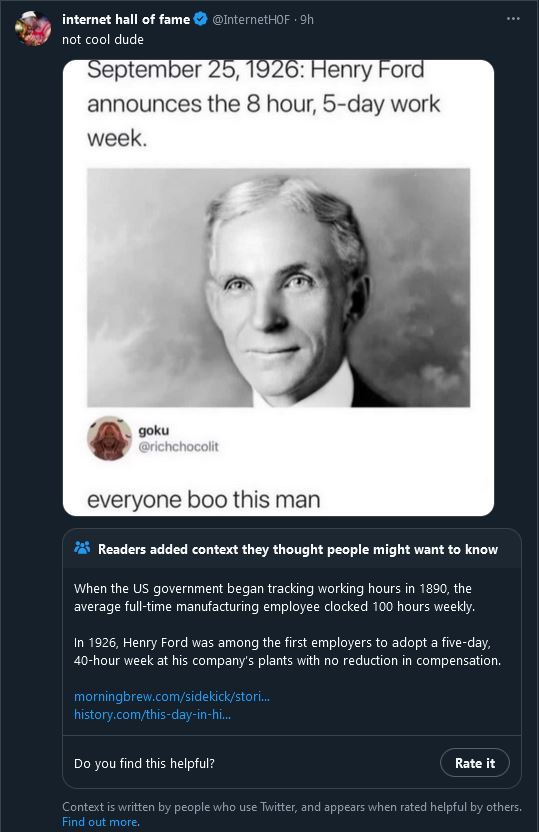
#of course good luck finding a history book that hasn’t literally been rewritten#the way these new ones are twisted to serve whatever current message is being pushed is quite literally propaganda and brainwashing 101#facts are easy to manipulate and critical thinking is being taught as a farce#Goebbels would have had a field day in this era and we just keep proving our willingness to be hand-fed information at every turn#even in small “unimportant” things like this#Henry Ford fits the idea of the type of person we should hate now so naturally we will. no questions asked#life and history are so rarely black and white and forcing it to be is doing untold damage to our society and our culture#history#politics#idk
4K notes
·
View notes
